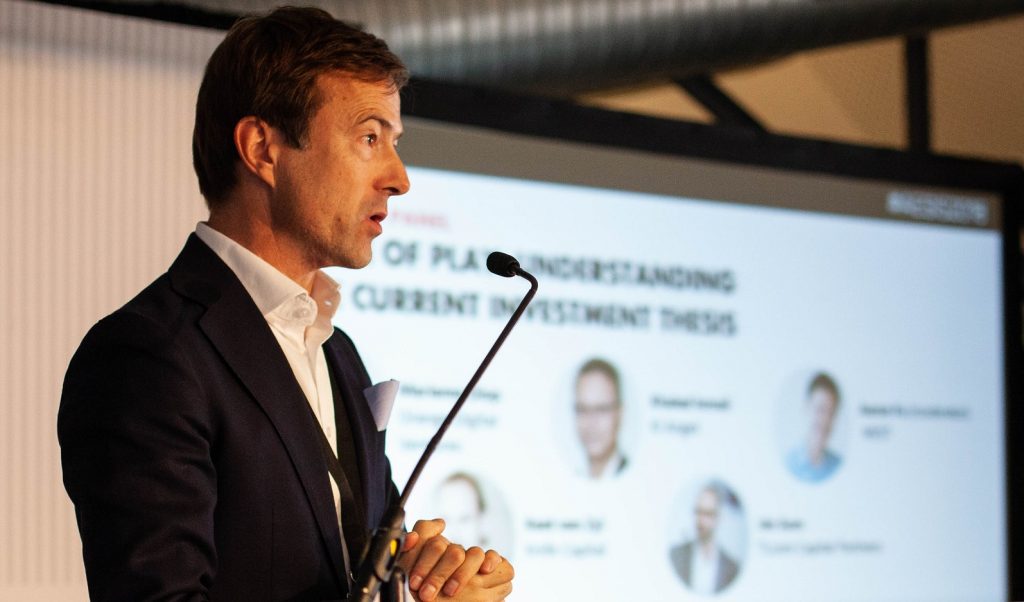Artificial Intelligence (AI) is no longer just a buzzword. It is embedded in everyday work, from drafting emails to automating entire workflows. For Memeburn’s…
VC is growing in Africa, but sector still hobbled by lack of follow-on and seed funding

Ten years ago when Cape Town venture capitalist Justin Stanford and entrepreneur Vinny Lingham launched Cape Town’s startup initiative Silicon Cape there was hardly an angel or VC fund in sight in South Africa, local or foreign — and barely anything to speak of in the rest of Africa.
“It was a sparse and difficult landscape with many obstacles,” recalls Stanford, a partner at 4Di Capital in an email to Ventureburn last week.
Fast track to today and the VC and angel investment sector looks totally different.
Says Stanford: “Since then we have seen a notable rise in the prevalence of all of these, and the rate of change appears to be accelerating. In particular foreign funders are becoming increasingly active”.
Africa’s VC sector is growing, but still faces significant challenges, such as a lack of follow-on funding and angel investors
In South Africa the introduction of Section 12J VC tax incentive has increased the number of funds and the amount of capital available to be deployed to entrepreneurs (see this story).
With the increase in VC funding on the continent, Stanford reckons there’s now even an oversupply of capital in certain verticals in East Africa.
Rise and rise of VC in Africa
Driven by the growth of smartphone adoption, Africa’s VC sector has become something of a success story. By some accounts 2019 may turn out to be one of the sector’s best year’s ever.
Data on the sector is scant and is often dependant on what definition for a tech startup one employs.
The most recent report, by French VC Partech Africa in March, found that 146 African tech startups raised $1.163-billion in equity funding last year over 164 rounds. The figure marked what Partech said is a 108% year-on-year growth in funding raised by tech startups on the continent (see this story and below for more related to data on the sector).
An optimistic Olu Oyinsan, a partner at Oui Capital, expects the total amount of VC funding in Africa to grow by another 50% this year to about $1.5-billion.
It’s no wonder Kingson Capital‘s Gavin Reardon calls the prospects for Africa’s VC sector “very exciting”, particularly for fintech.
“There has been good growth and smartphone penetration is making tech even more accessible to the masses,” he adds.
Silvertree Holdings‘ managing director Paul Cook echoes these comments when he says the VC sector in Africa has developed, pointing out that there are more VCs, more credible VCs, and more deals taking place on the continent now than before.
“We remain excited by the intersection of timeless brand building skills with new economy routes-to-market, to reach African consumers in new and disruptive ways,” he adds.
Cook says for example Nigeria and to an extent Kenya are starting to appear on the global VC landscape as investment targets.
But he adds that South Africa on the other hand is probably somewhat less likely to attract global VC capital than five years ago — among other things, largely because the SA economy has slowed and because a wave of ecommerce investments made a few years ago (by Naspers, Tiger Global, Rocket Internet and others) has since declined, he says.
Lack of follow-on funding, seed capital
But despite this, the sector still faces significant challenges — such as a lack of follow-on funding and angel investors.
Bamboo Capital Partners managing partner Florian Kemmerich agrees that while there has been major growth in the African startup scene, angel investment in Africa is virtually “non-existent”.
“The startups don’t get the same level of seed funding as Western companies and they often raise funds for a Series-A round too early as a result,” he says.
He says fundraising mechanisms with an adjusted risk-reward scenario need to become more commonplace to allow investors to enter at the seed stage.
“This will help African startups prove their concept, raise money for a Series A round and start to scale their business. Regulation is also important, we want to encourage foreign investors to invest in these companies too.”
Knife Capital partner Keet van Zyl says while the number of startups that have been able to raise funding at a Series-A level has grown, a “significant gap” in funding still exists at seed stage and for follow-on funding
“When it comes to African entrepreneurs, we may have one of the largest mismatches in the world between the size of the opportunities and the amount of capital required to access them.
“Compared to peer economies, the venture capital market in the region is drastically under-serviced with available investment capital.
“Seed funding is scarce, however on the back of initial startup successes and an increased focus on building a cohesive technology ecosystem, the funding gap is closing for companies at the early growth stage.
“But a Series-B crunch looms for the crop of startups that have gotten over the Series-A funding hump and now require significant risk funding for aggressive growth at breakout stage,” he points out.
He says while the private equity sector is well established in South Africa, the VC sector is still emerging.
“VC can play a critical role in creating commercially feasible entrepreneurial ventures, but it needs to be fostered and its unique local differentiating factors still defined,” he adds.
Lack of institutional funding
He says a lack of institutional funding is one of the main challenges that the sector faces, as most funding for startups still comes from private individuals or angel investors.
Another challenge, he says, is building team capacity for value-adding post-investment portfolio management.
Van Zyl believes the growth of VC can be sped up by enabling more fund-of-fund capital sources to commit funding to VCs and by carrying out more fund manager training or support initiatives to build more successful VCs.
Van Zyl’s concern is echoed by Oui Capital’s Oyinsan. Oyinsan says a lack of institutional funders remains a critical bottleneck to the growing VC sector.
He says African institutional limited partnerships (LPs) need to be allocating more to VC — from insurance companies, to larger asset management companies and pension funds.
“For example, Fortune 1000 pension plans in the US currently have about 4% of their total VC/PE portfolio allocated to Africa compared to only 0.2% by Nigerian pension funds. Closing this kind of gap will go a long way to spur the growth of the ecosystem while offering investors attractive returns,” he says.
In addition, Silvertree’s Cook believes there’s still an overemphasis by those in the tech startup sector on co-working spaces, so-called tech “hubs” and pitching events.
“The VC industry is still very small, so it is almost always not a viable strategy to collect a team of inexperienced first-time entrepreneurs, build a pitch deck, and hope for the best. Startups need to focus on building a business, and some formal business experience on the team is very helpful,” he points out.
‘Two steps forward, one step back’
David van Dijk (pictured above), the co-founder and director general of the African Business Angels Network (ABAN), remains more cautious about trumpeting VC’s success in Africa.
“(It) always feels like it’s two steps forward and one step back. Like every year there are new funds and new players that take an interest in African tech, bringing new capital and fresh ideas, which is great. At the same time it still feels like we are still only scratching the surface of what is possible.
“We are nowhere near bringing out the full potential of local talent. Only so many entrepreneurs break through and only so many opportunities become a reality.”
These days venture capitalists might be smiling more about Africa than before, but they need to take a long hard look at how to overcome the challenges that the sector still face. The hard work is no where near over yet.
*Ventureburn writer Daniel Mpala also contributed to writing this article.
Read more: African tech startups raised over $1.2bn in funding in 2018 – Partech report
Read more: African funding figures – what’s the real number? [Opinion]
Read more: Are these the 10 biggest disclosed African tech startup deals of 2018? [Updated]
Read more: Are these the biggest disclosed VC deals in 2018 involving SA tech startups?
Read more: Weetracker African VC report raises questions on definition of tech startups
Read more: Tech startup site Disrupt Africa mum on how it collects data for $150 reports [Updated]
Read more: AfricArena predicts funding raised by African startups in 2018 will crack $1bn
Editor’s note (20 August 2019): We updated the article to include an explanation from Silvertree Holdings managing director Paul Cook on why he believes South Africa is less attractive for VC investments than five years ago.
Featured image: African Business Angels Network (ABAN) co-founder David van Dijk (Supplied/Robert Cable)

